05:21
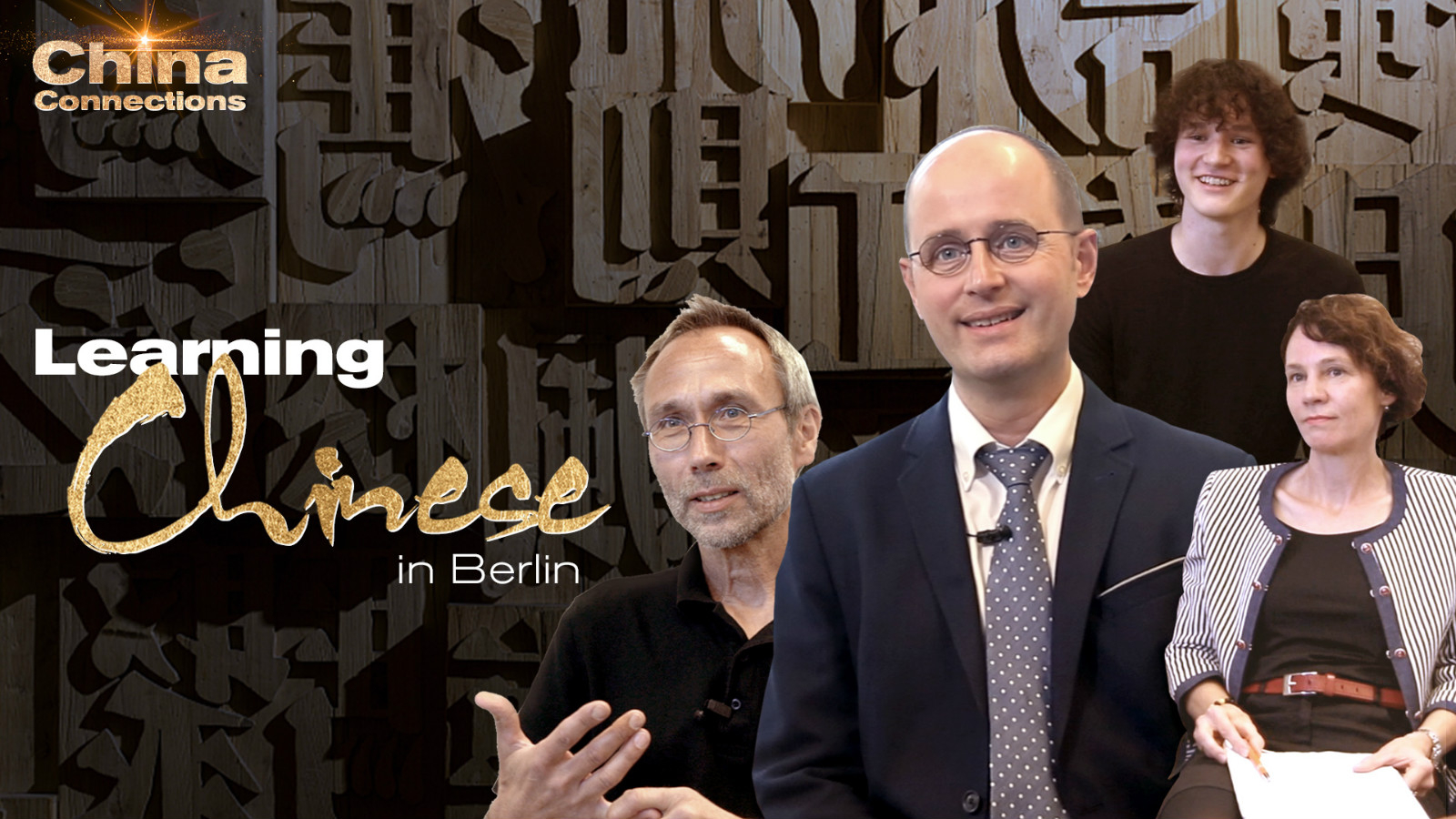
It is hard to believe so many people in Berlin have been learning Chinese 7,300 kilometers away from Beijing, without visiting the city.
Their motivations are all different, but the China Cultural Center in Berlin and its Chinese class got them all together and led them to one destination: China.
I talked to several students and each one of them has an interesting story to share.
Keno Budde: I'm fascinated with China's technology
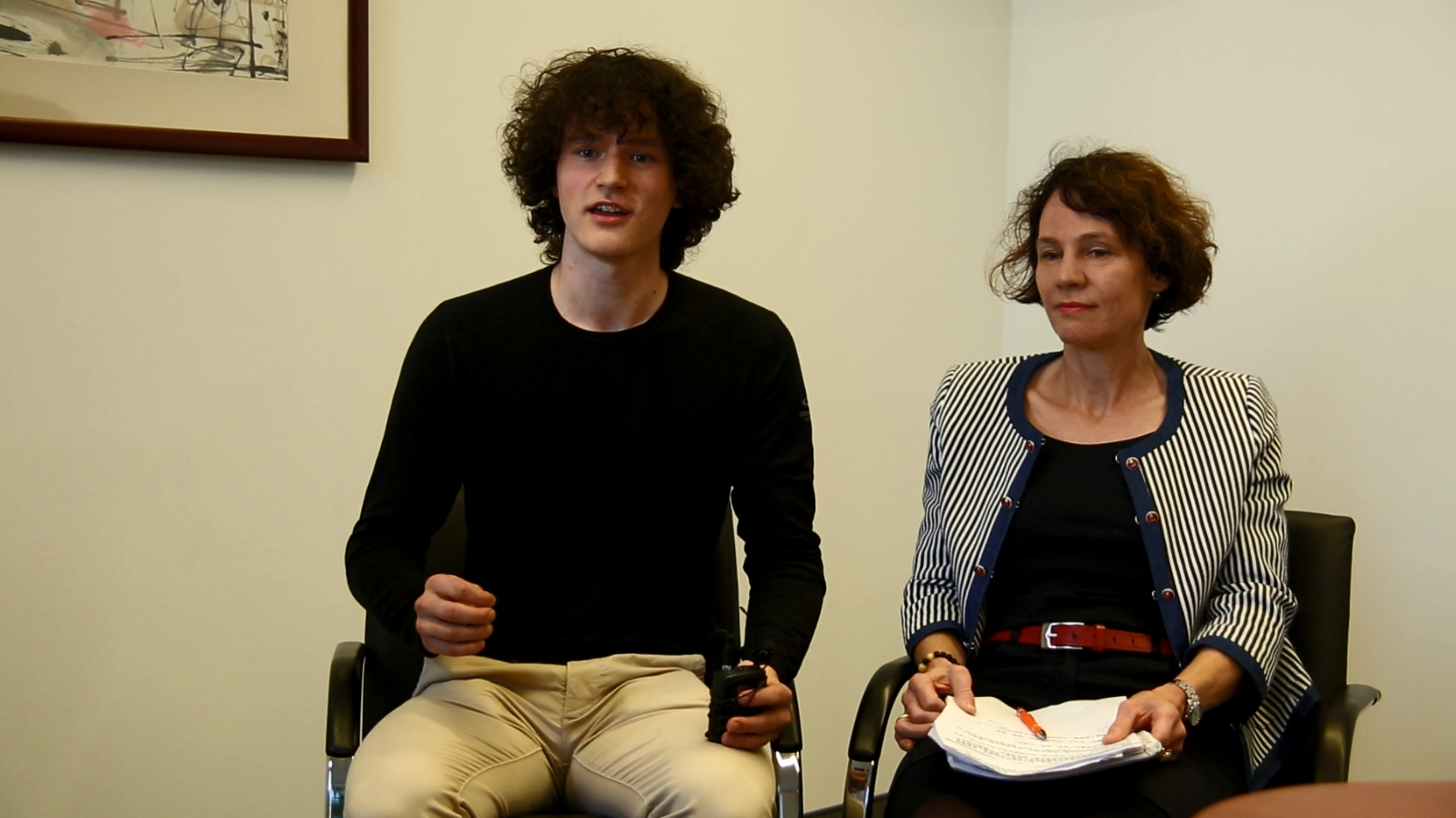
Keno Budde and his mother Maike Kessler during interview with CGTN. /CGTN Photo
Keno Budde and his mother Maike Kessler during interview with CGTN. /CGTN Photo
Born in 1999, Keno Budde is the youngest interviewee from the Chinese class. He is still a college student majoring in biochemistry. This sit down to talk to CGTN happened just after his return from a trip to Beijing and Nanjing with his mother – an awarded trip sponsored by the China Cultural Center for outstanding performance in Chinese learning.
Young and enthusiastic as he is, he could not hold back his excitement while describing how he was charmed by the advanced technology he experienced in China, during the summer.
"Mobile payment in China just works flawlessly," Budde said. "It's amazing to see how a whole country went away from cash, completely to e-payment within a couple of years."
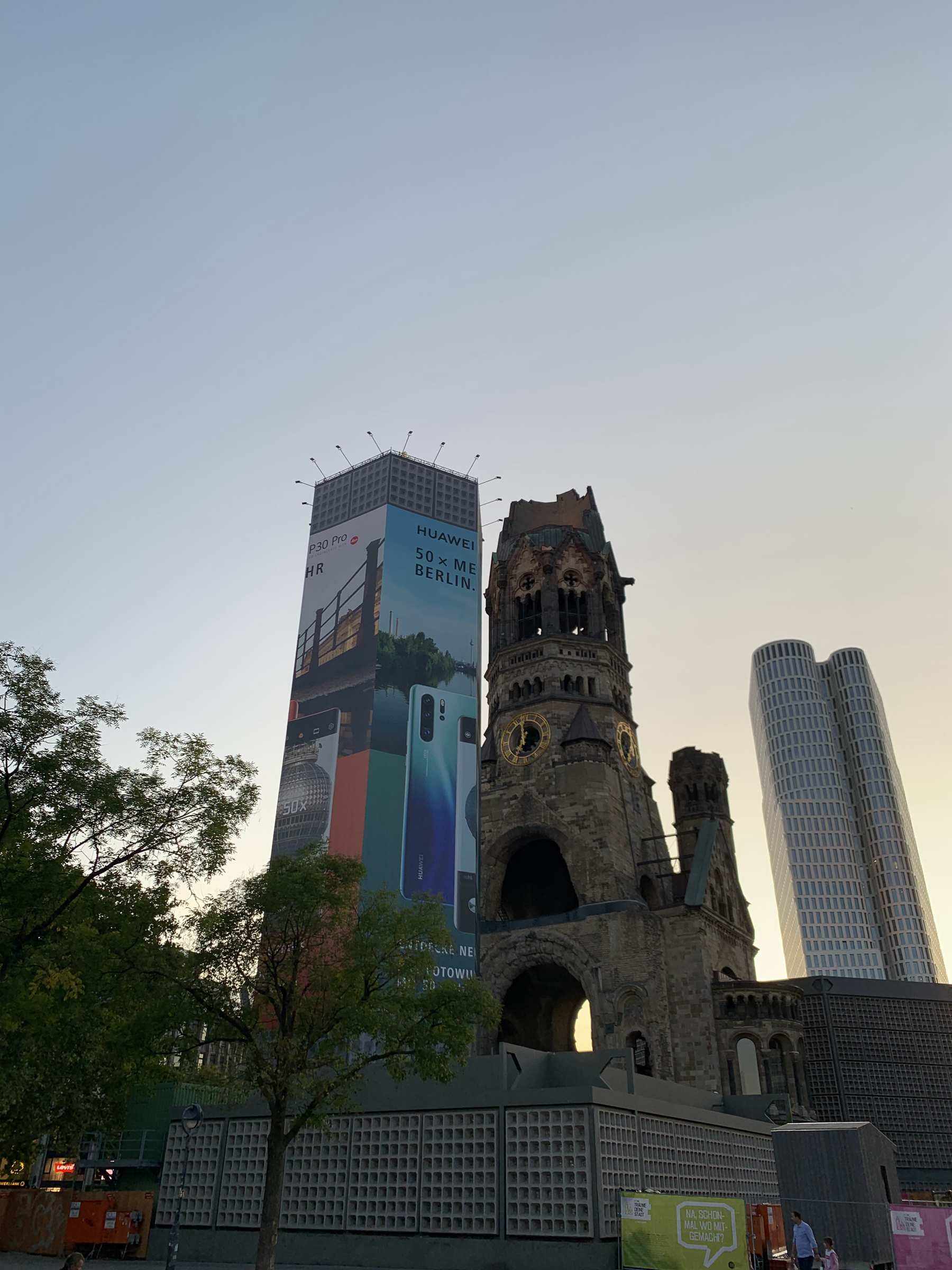
Huawei's advertisement poster at the center of Berlin. /CGTN Photo
Huawei's advertisement poster at the center of Berlin. /CGTN Photo
He is also a loyal Chinese mobile phone user, and has stuck with the "One Plus," a brand well-known for its simple and user-friendly designs, since its first generation. He told CGTN that his whole family has been using Chinese mobile phone brands: His girlfriend and brother both are using Huawei phones, and Xiaomi for his grandparents.
As a tech geek, Budde is of course looking forward to the 5G era, while complaining a little bit about the Internet connection speed in Germany.
"As I know, our mobile phone providers, considering they can't even provide 3G yet in Germany, it will take a long time for us to see 5G implemented," Budde joked.
Maike Kessler: Chinese TV dramas, Peking Opera, and food
Keno Budde started to learn Chinese under the influence of his mother, Maike Kessler, who insists that she accepts the interview but it need to be in Chinese as much as possible.
It is not difficult for me to notice how much Kessler loves Chinese culture. She has been carrying the studying materials with her all the time, and tried very hard to pronounce every word and phrase correctly.
She told me during the interview that she studied Chinese for a semester while staying in Taiwan. When she knew that the China Cultural Center offered Chinese lessons, she registered as a student again without any hesitation.
Kessler enjoys all the Chinese culture that she can get her hands on. Being an ophthalmologist, it is not easy for her to squeeze time to learn a new language, but she never let goes of an opportunity.
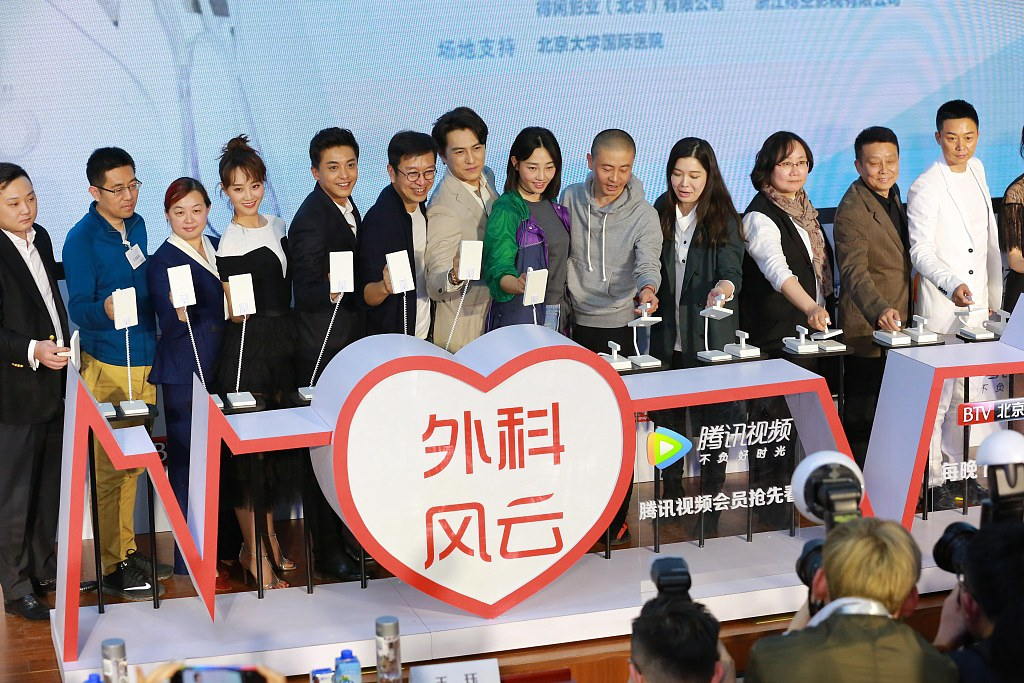
Cast of Chinese TV drama "Surgeons" pose for a photo in Beijing. /VCG Photo
Cast of Chinese TV drama "Surgeons" pose for a photo in Beijing. /VCG Photo
She cooks Chinese dishes for her children, talks to her Chinese teachers, travels in China, and she also adores watching Chinese TV dramas. Her latest favorite was "Surgeons" starring Chinese actors Jin Dong and Bai Baihe.
"It was close to my life, of course I'm interested in them," Kessler smiled.
She has been helping her husband to introduce German music textbooks into China for the last five years. Therefore she has more opportunities to come to China.
"We will go to Nanjing and Suzhou next month, and I have booked the high-speed train tickets," Kessler said, expecting her first experience of traveling in a high-speed railway.
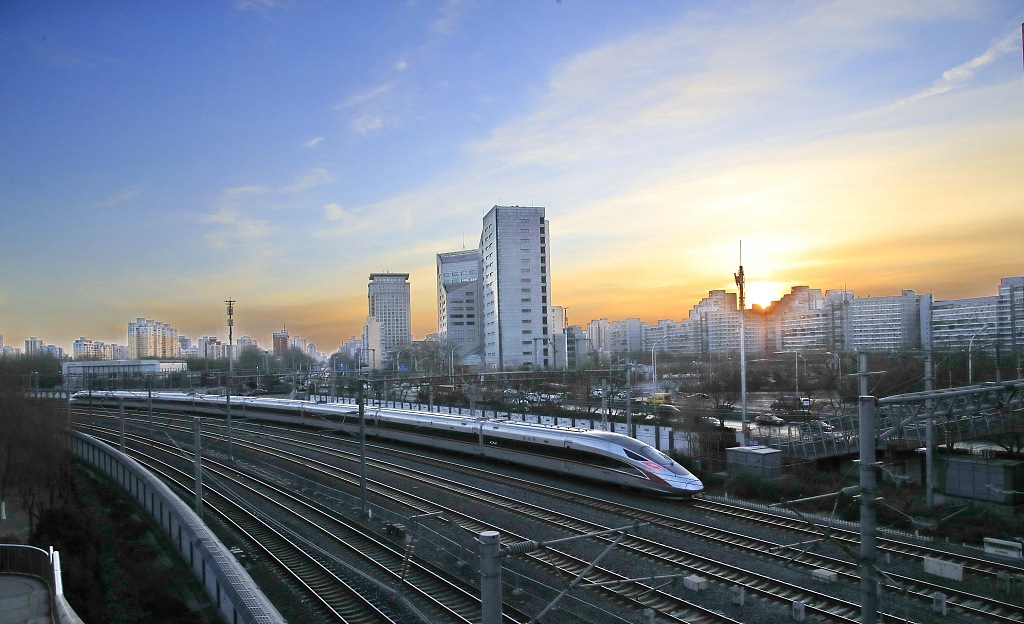
File of high-speed train in China. /VCG Photo
File of high-speed train in China. /VCG Photo
Dr. Andreas Pietsch: Music and travel brings us closer
Dr. Andreas Pietsch's story has a romantic beginning: He met a beautiful Chinese woman and fell in love with her. That's how he started to learn Chinese.
Even though the story did not have a fairytale ending, his love for the Chinese culture lasts even after the woman left.
Dr. Andreas Pietsch is a teacher at Ernst-Abbe High School, as well as the winner of the "award-trip-to-China" in 2017. He traveled to many Chinese cities, from metropolises such as Beijing and Shanghai to smaller ones, like Dali.
He also made a plan to travel to all the scenery spots printed on Chinese banknotes, and now he only spots left are the Yangtze River and Lhasa.
01:01
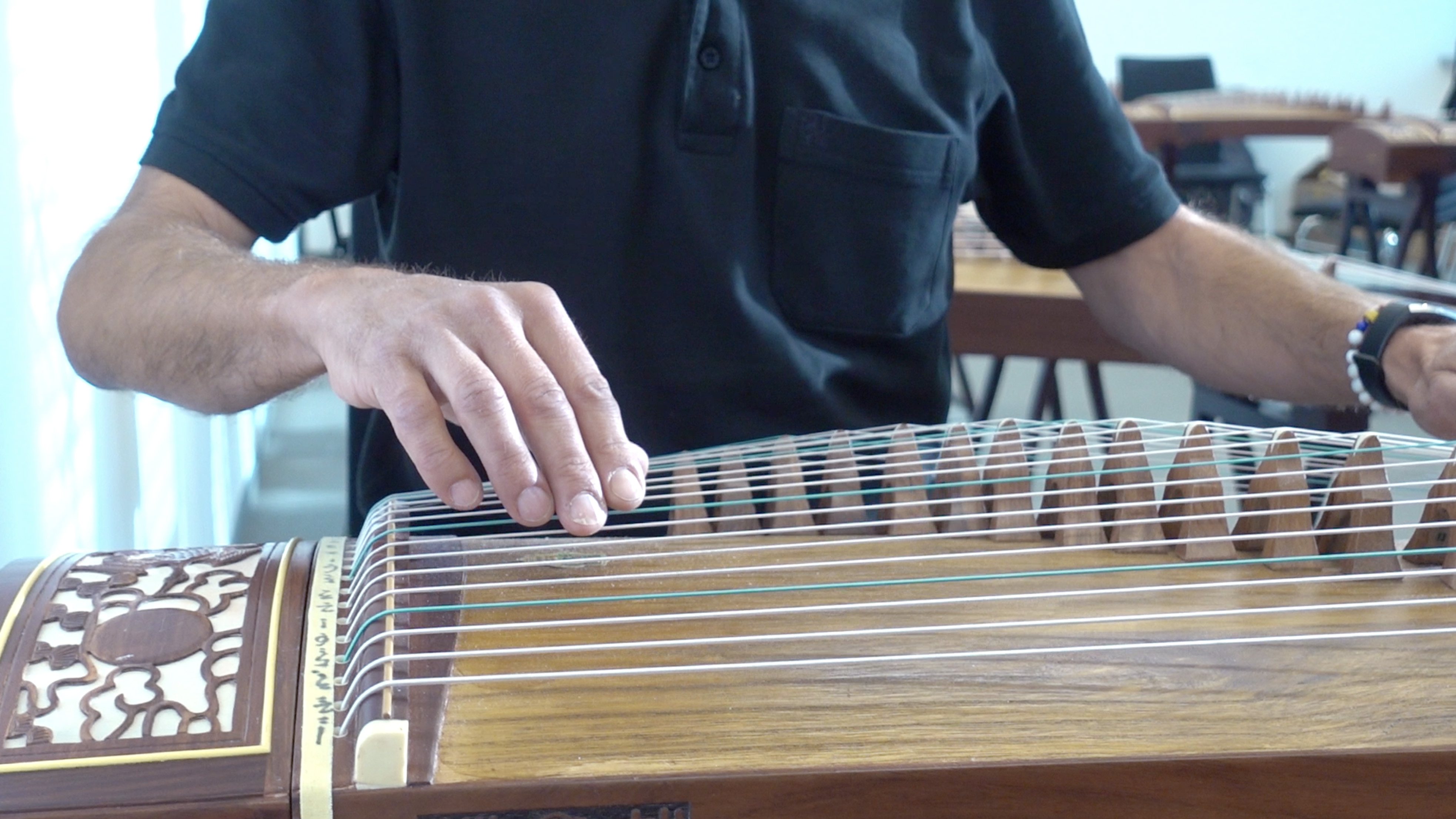
Dr. Pietsch also found new interests when he started to learn some Chinese instruments. Guzheng and morin khuur are his favorite. Morin khuur, also known as the horsehead fiddle, is an Inner Mongolian instrument. Different from the cello, which is familiar to him, the horsehead fiddle brings something fresh.
At the end of the interview, Dr. Andreas Pietsch played a fragment of traditional Guzheng music to us, and the melody told us just how much he loves and enjoys it.

Lhasa, Tibet Autonomous Region of China. /VCG Photo
Lhasa, Tibet Autonomous Region of China. /VCG Photo
Alexander Straßmeir: Language is like a mirror
Working for the State Office of Refugee Affairs, Alexander Straßmeir had some opportunities to travel to China on business and for tourism. After his second trip here, he started to learn the language.
"The language is like a mirror, in which you can see the way of thinking, philosophy, and the culture behind the language," he said. For him, language provides an entrance to a different way of thinking.
He loves Chinese calligraphy and enjoys walking on Liulichang Road, an ancient area well known for ancient artistry and antiques, to buy the "Four Treasures of the Study" (brush, inkstone, ink, paper), as well as calligraphic works.
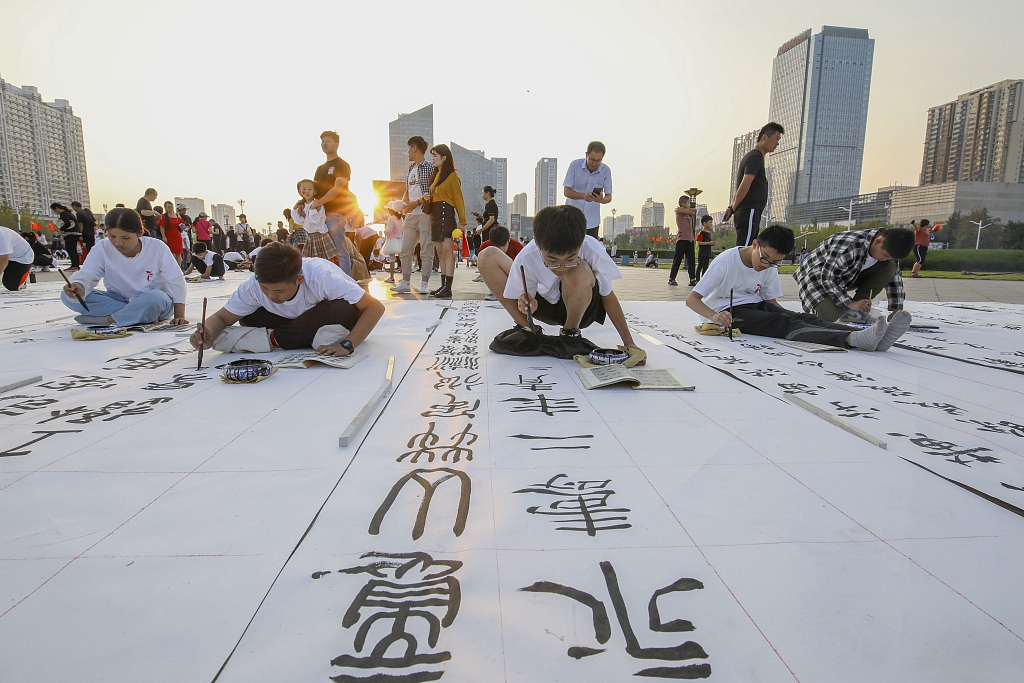
Chinese young students writing calligraphic works on a roll. /VCG Photo
Chinese young students writing calligraphic works on a roll. /VCG Photo
Straßmeir also likes Chinese pop-music and the disciplined environment in the subway, saying it is much cleaner than in his own country.
Even though my interviews with them are done, their Chinese stories continue. Keno Budde hopes he may one day work in a Chinese technology company, and Maike Kessler is preparing for her next journey to China. Dr. Andreas Pietsch is looking forward to a post in the country and Straßmeir expects more exchanges in education and other fields.
Language is only a bridge, and again, it is up to the people to decide whether they cross the bridge and embrace each other.
Reporter: Ai Yan
Videographer: Ai Yan
Video editor: Ge Kai
Graphic designer: Gao Hongmei